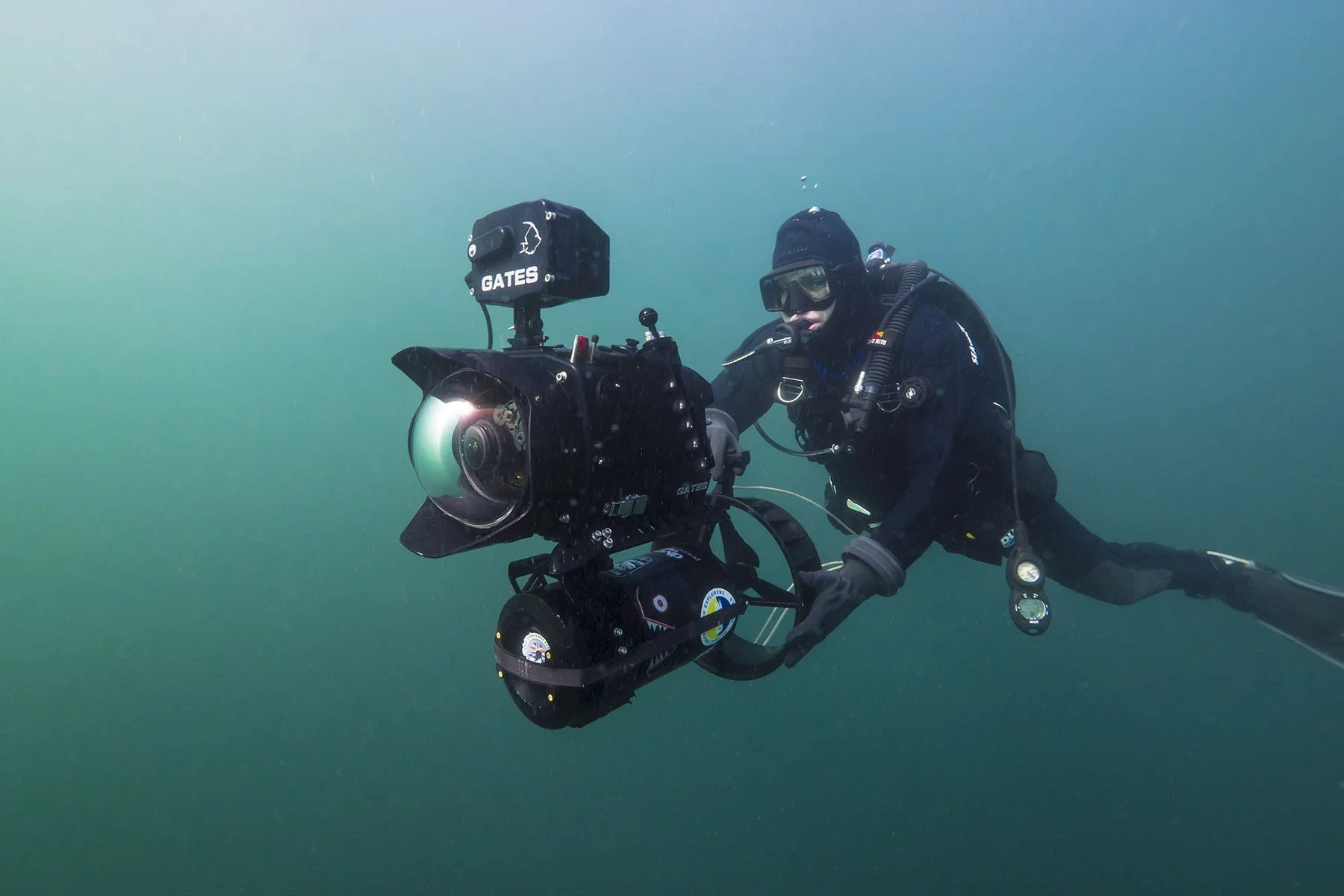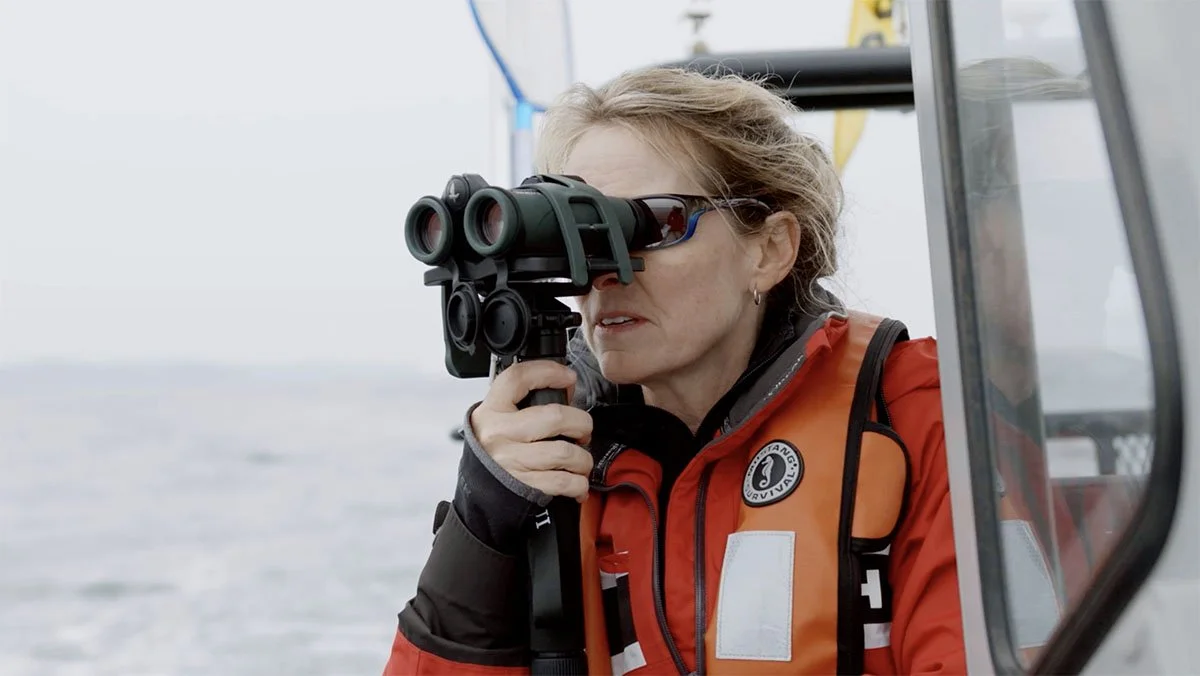Royal british columbia museum
If the Pacific Northwest, North Shore’s home region, has a totem animal, it must be the orca, or killer whale. They are the apex predator of PNW waters, and a species about which we have learned so much in the last fifty years. During that time they have transformed in our popular imagination from a soulless killer to a playful, intelligent, and loving creature with tight family bonds.
We were therefore excited to assist the Royal British Columbia Museum on their exhibit Orcas: Our Shared Future. North Shore’s team worked closely with the Museum during the design phase to envision a series of compelling film and interactive elements that would enhance the exhibit and achieve their interpretive goals.
Production was dynamic and far-reaching, with shoot locations ranging from a dive boat off the coast of Vancouver Island to a marine biologist’s lab in New Zealand. One of the unique technical challenges we faced was how to mimic the side view perspective of orcas as they swim, for the underwater immersive projections. North Shore created a custom underwater camera rig combining a RED Epic Weapon with an underwater dive scooter and rotating bracket mount. This allowed us to film at speed ninety degrees off axis from the direction of travel.
Other key media pieces included a multi-touch interactive on Orca anatomy and a multi-user game on ocean health. The human relationship to orcas is a strong theme running throughout the exhibit, including in our film about Richard Hunt, a Kwakiulth carver whose people have strong ties to orca. A film about Morgan, a captive wild whale, explores questions of personhood and whether civil rights should be extended to other species besides ourselves.
Originally exhibited at the Royal BC Museum, the Orcas exhibit is now traveling to other museums across North America and Europe.
Awards:
Silver Telly Award (Orcas for Profit)




